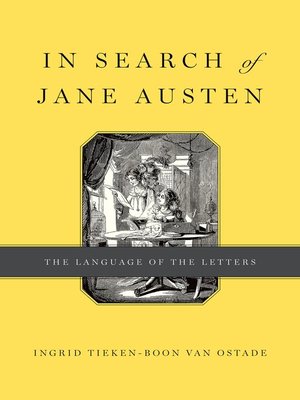
Sign up to save your library
With an OverDrive account, you can save your favorite libraries for at-a-glance information about availability. Find out more about OverDrive accounts.
Find this title in Libby, the library reading app by OverDrive.



Search for a digital library with this title
Title found at these libraries:
| Library Name | Distance |
|---|---|
| Loading... |
Along with Shakespeare, Jane Austen (1775-1817) can be said to be the most widely studied author in the history of English literature. But unlike Shakespeare, her language has received little scholarly attention. This is especially true for the language of her letters. Jane Austen's letters, mostly addressed to her sister Cassandra but to various other people as well, have been described as the equivalent of telephone conversations, and if you read them, you can almost hear her speak. We do not have access to actual speech from the time in which she lived, but the letters take us as close to the spoken language of the period as you might hope to get. They are therefore a veritable linguistic goldmine. This study, for the first time, offers a detailed sociolinguistic account of all aspects of the language of her letters: spelling, vocabulary and grammar. It also produces some evidence of pronunciation as well as of local dialectal usage. The analysis shows Jane Austen to be rather idiosyncratic in her language use: she was consistent in her spelling (though she had unusual spelling preferences), not very innovative in her vocabulary (though she did coin a few new words), and not quite representative of grammatical developments of the times (though her usage differed depending on who she wrote to, her sister, her publisher or her nieces and nephews). This study of Jane Austen's private language use shows the extent to which she varied in her language use, just like any of us do today, while is also provides evidence both for a date of her unfinished novel The Watsons (for the first time on linguistic grounds) and for the interplay there must have been between the editors of her novels and her own linguistic preferences, in the field of spelling and otherwise.







